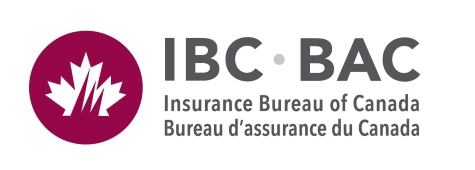OTTAWA, April 2, 2019 /CNW/ - Today, the Government of Canada released Canada's Changing Climate Report. This first report, part of the government's Canada in a Changing Climate: Advancing our Knowledge for Action, provides a firm scientific foundation for future analyses and is a valuable tool for governments who are looking for ways to adapt and make their communities more resilient.
The report concludes that Canada is seeing the effects of widespread warming and projects that they will intensify in the future. Annual precipitation is projected to increase in all regions of Canada[1] and a warmer climate is expected to intensify some weather extremes. Projected increases in extreme precipitation are expected to increase the potential for future urban flooding.
The report says Canadians can expect extreme hot temperatures to become more frequent and more intense. This will increase the severity of heatwaves and contribute to increased drought and wildfire risks. While inland flooding results from multiple factors, more intense rainfalls will increase urban flood risks. Under the high emission scenario explored in this report, a current 1-in-20-year extreme rainfall event will become a 1-in-10-year event by mid-century (a two-fold increase in frequency).
The report clearly points to the need to adapt now to make our communities more resilient.
"The property and casualty insurance industry continues to see the devastating effects of this new era of an unpredictable, changing climate," said Don Forgeron, President and CEO, IBC.
"Last year, insured damage from severe weather across Canada reached $2 billion, the fourth-highest amount of losses on record," continued Forgeron. "However, unlike the 1998 Quebec ice storm, the 2013 Calgary floods or the 2016 Fort McMurray wildfire, no single event caused the high amount paid out for losses in 2018. Instead, Canadians and their insurers experienced significant losses from a host of smaller severe weather events from coast to coast."
IBC has encouraged all levels of government to increase their investments in mitigating the impact of extreme weather and building resiliency to its damaging effects. In addition to advocating for upgraded infrastructure to protect communities from floods, IBC is also advocating for improved building codes, better land-use planning, and incentives to shift the development of homes and businesses away from areas that are at highest risk of flooding.
The storm that hit Ontario on February 24 and 25, 2019, with damaging wind gusts, freezing rain and blizzard conditions caused over $48 million in insured damage. This is just the first severe weather storm to hit Ontario in 2019. In 2018, insured losses from severe weather reached $1.3 billion in that province.
It is not only insurers that foot the bill for severe weather damage. For every dollar that insurers pay out for home and business insurance claims, IBC estimates that governments pays out $3 to recover the public infrastructure that is damaged by severe weather.
About Insurance Bureau of Canada
Insurance Bureau of Canada (IBC) is the national industry association representing Canada's private home, auto and business insurers. Its member companies make up 90% of the property and casualty (P&C) insurance market in Canada. For more than 50 years, IBC has worked with governments across the country to help make affordable home, auto and business insurance available for all Canadians. IBC supports the vision of consumers and governments trusting, valuing and supporting the private P&C insurance industry. It champions key issues and helps educate consumers on how best to protect their homes, cars, businesses and properties.
P&C insurance touches the lives of nearly every Canadian and plays a critical role in keeping businesses safe and the Canadian economy strong. It employs more than 126,000 Canadians, pays $9 billion in taxes and has a total premium base of $54.7 billion.
For media releases and more information, visit IBC's Media Centre at www.ibc.ca. Follow us on Twitter @InsuranceBureau or like us on Facebook. If you have a question about home, auto or business insurance, contact IBC's Consumer Information Centre at 1-844-2ask-IBC.
If you require more information, IBC spokespeople are available to discuss the details in this media release.
______________________________ |
1 Unlike temperature, which is projected to increase everywhere in every season, precipitation has patterns of increase and decrease. |
SOURCE Insurance Bureau of Canada

To schedule an interview, please contact: Vanessa Barrasa, Manager, Media Relations, 416-550-9062, [email protected]

Share this article